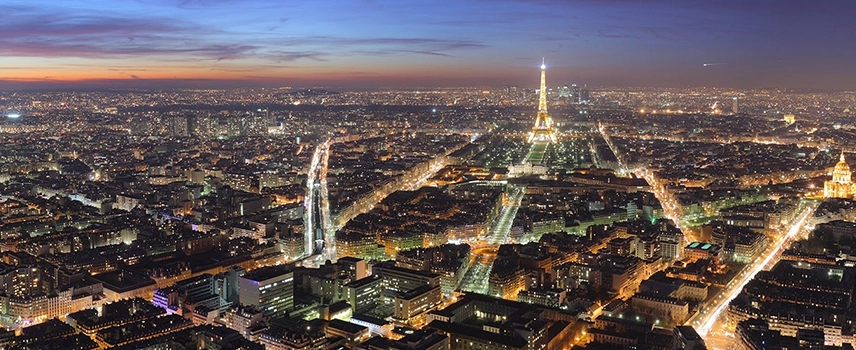Armed Security Services in France
“What does the new French firearms law mean?”
by Virginie Roux | 5th January 2018

Armed Bodyguards in France?
Having been the target of a number of terrorist attacks over the past three years and with the increasing threat to its security, France has recently been operating major changes to its legislation to reduce potential risks and reinforce the population’s safety.
Thus, last November the French Government put an end to the state of emergency that had been extended 6 times since the Charlie Hebdo attack, replacing it by a new anti-terrorist Law. The law grants more powers to law enforcement agencies to conduct searches, establish a security zone around a place or an event, shut down places of worship sharing extremist views, and place suspected jihadist sympathisers under house arrest in order to fight terrorism.
On the same note and to continue its efforts against terrorism, France published this month a new law authorising armed security by close protection officers and security guards, creating a new status of “armed security agent”. Whereas the British government doesn't allow VIPs to be protected by armed bodyguards in the UK.
To give you a better understanding of what the law entails, here is a description of how the law applies to the private security sector.
Who can use Firearms for Security in France?
The law surroundings the use of weapons for security in France will differ whether the operative is a security guard or a bodyguard.
In the first instance, a security guard can carry a handgun only when facing an exceptional risk for their life, or the life of the persons that are present at the facility that they are guarding.
In the second instance, bodyguards are allowed to carry a firearm, only when they are protecting a person who is exposed to exceptional threats that put their life at risk.
In both cases, security operatives will have to apply for a professional card to use a firearm for their work.
Obtaining the Authorisation for Close Protection
The authorisation for carrying firearms must be requested by the client in writing, to the security company who holds a CNAPS licence. Said security company will in turn request permission from the police commissioner of the region where its establishment is located, whereby a decision will be made. If approved, the police commissioner will then inform CNAPS (Conseil National des Activités Privées de Sécurité) of their decision.
The authorisation is awarded if you can provide written evidence from the client that his/her life is at risk, that the operative who would be in charge of the protection of your client is certified, physically and mentally fit to use a handgun, and that you can safely store firearms.
Note: It should be noted that any authorisation will be difficult to obtain; further to this, it is only likely that authorisation will be given (in terms of Close Protection tasks) for task of medium to long term duration and again, the tests for the requirement will have to be met with the Ministry of Interior.
The authorisation will be valid for a year that is renewable, or will terminate before this period when the client’s need for personal security ends. The permit will mention the identity of the person that is protected and the type of firearm that the bodyguard can carry.
If successful, the authorisation covers the company in terms of firearms’ use, storage, and transportation.
Conditions of use
Armed bodyguards are authorised to carry either a 38-caliber revolver, a 9mm pistol, a pepper spray, or a baton.
When on duty, the armed close protection officer in charge of the protection of the principal must covertly carry their handguns in their holster, in locked position and must have with him a copy of the authorisation.
When off duty, the firearm and ammunitions must be put back in the place of storage provided by the company for that purpose.
Conditions for Firearms Storage
To comply with the law, firearms must be safely stored when unused, in a strong-box in a secured room or strong room that features an armoured door, with the openings protected by bars or metallic shutters. The company must also keep a log book of the firearms they have stored, as well as of their inward and outward movements.
Conditions for Transportation
When handguns are transported between the place where they are stored and the one where they will be used, they must be unloaded and in a state where they cannot be used.
Firearms Training in France
To be certified as an armed security operative, a bodyguard has to undertake initial training with an approved shooting centre on rules surrounding security, storage, handling and use of firearms. (As of yet, official training courses are yet to be certified.)
In addition to this, the applicant must have participated in three shooting sessions prior to the application, and will be committed to continue to take part in regular shooting practices thereafter.
Should you require Armed Protection in France, please contact us. Intelligent Protection International Limited is the longest established UK firm that operates in France, having been the first one to be licenced with CNAPS to provide Close Protection in France: Close Protection Services for France or Protection Rapprochée en France. If you are seaking bodyguard services in Paris specifically, please see our page: Bodyguard Services Paris.
France
Paris
Intelligent Protection International Limited
12-14
Rond-Point des Champs-Elysées
75008, Paris
France